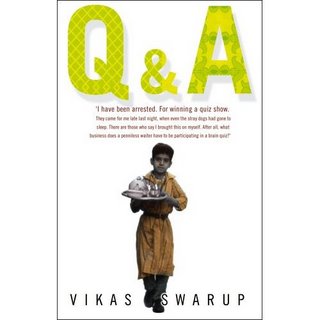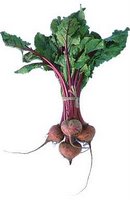READING:
How do we know what we know? It’s an interesting thought. My family often accuse me of having a head stuffed with useless information, but what if it wasn’t useless, what if it enabled me to win
That is really the premise of this very entertaining book Q and A by Vickas Swarup
Ram Mohammed Thomas is an 18 year old who has managed to reach the finals of an Indian TV quiz show to win one billion rupees. He has to answer all twelve questions correctly. Of course the producers of the show are confident that they will not be paying out the money as how could this young man from the streets possibly know the answers to the questions they are setting. However he does know all the answers and so he wins. In the ensuing furore, the producers have him a rrested and slung in jail, convinced he must have cheated in some way.
rrested and slung in jail, convinced he must have cheated in some way.
The story is told in flash-back and covers twelve incidents in Ram’s life, how a priest found him in a dustbin as a baby, how he acquired his three names, how he managed to fool a professional hit man, how he fell in love and then had his heart broken, each of the twelve incidents gave him one of the crucial answers, and let him know that his answer was correct. Ram is a very warm and endearing young hero, and the reader cannot help but take him to their heart right from the beginning. A real feel-good book, and in addition I learnt more about modern India, with all its contrasts of rich and poor, misery and happiness from reading this book than I would have from reading a score of serious articles about the country.
RANT:
I sincerely hope I will feel better about Life, the Universe and Everything once I have got this off my chest.(weak and feeble smile).
In this country, and for the last century at least, a crime is considered to be an offence against society (as well as being an offence against any victim) and therefore the State takes on the responsibility of investigating, prosecuting and sentencing those who commit crimes. This is obviously a sensible and civilised thing as otherwise we would revert to the dark ages and have a situation where everyone took the law into their own hands, and that would lead to all manner of injustice, vigilantism, feuding and so forth.
The courts are places where society has decided anyone accused of a crime should be tried, and in this country, a defendant (that is an accused person) is innocent until they are proven guilty beyond any reasonable doubt.
I am extremely concerned, that this government is quietly whittling away at the whole concept which is the bedrock of our criminal jurisprudence. Continual snippets of comment from Blair, Reid, Blunkett and other Home Secretaries (recently the Director of Public Prosecutions, Ken McDonald QC made a speech stating he too has swallowed the zeitgeist ), show that there seems to be some kind of woolly thinking going on about what the criminal law is actually for. It is suggested that individual victims should have the right to air their views in court and that would somehow “balance” the system.
Do they really think that turning the courts into a platform for a victim’s grievances would be appropriate? Whilst I hope we would always want to take the effect that a crime has had on a victim into consideration, how can it be helpful to have them stand in court and tearfully recount their feelings (unless of course they are witnesses in the case). It might make them feel better, but will it do anything to improve the trial and sentencing process?
The suggestion that victims should have some part to play in deciding a sentence fills me with anxiety. There are so many factors to weigh up when sentencing someone who has been found guilty of a crime, and a range of penal options are open to use.
Were there aggravating or mitigating aspects to the crime? What was the intent of the accused to bring about harmful consequences? Will the sentence meet four main aims, punishment, protection of the public, rehabilitation and deterrence?
Vengeance is not, and should not, be part of the process
RECIPE:
My dear husband loves beetroot, not a vegetable of which I am fond, but this recipe makes them really delicious. Lucky for him our dear friend J came round with a bag of beets from her allotment, so he'll be in the pink at dinner tonight!BALSAMIC ROAST BEETROOT WITH GARLIC & THYME
4 Tablespoons olive oil
2 Tablespoons balsamic vinegar
2 Tablespoons lemon juice
3 cloves garlic, finely chopped
½ teaspoon salt
½ teaspoon ground black pepper
4 sprigs fresh thyme
25g butter, cut into small cubes
Pre-heat oven to 220°C
Place them in a single layer in a roasting pan, tuck the sprigs of thyme around them.
Mix the oil, vinegar, lemon juice, garlic and seasoning together in a small bowl.
Pour the mixture over the beetroots, turning each one gently to ensure they are all well coated with the dressing. Dot the cubed butter all over the dressed beets.
Tightly cover the roasting pan with tin foil.
Roast in the oven for about 45 minutes. Then check the beets with a small knife or skewer, they should be tender but still firm in the centre.
Serve the beetroot on a plate with the dressing from the roasting tin spooned over them, and garnish with fresh sprigs of thyme.


1 comment:
I have just found you. Reading, rants and recipes sounds just the ticket for me. Loving that granola one, will make it at the weekend.
Post a Comment